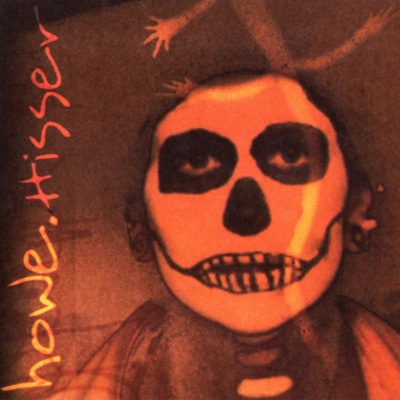
Hisser
by Nathan BushBuried within the album's liner notes, Howe Gelb thanks "all at V2, for allowing the structure to still make records like this." One listen to Hisser and there is no question what he is referring to. Gelb is on a mission to find a spontaneous approach to his music. This ideal encompasses every element from the tools and equipment used to the songs themselves and the way they are delivered. A "record like this" is one that didn't require a big budget, a New York recording studio, or an outside producer to shape and mold it. It's also the type of recording that allows Gelb to lay down the sort of half-formed songs a producer would fret over. Mostly recorded at Gelb's house, Hisser is an album that gladly lets its seams show. Like Robert Pollard, he isn't at all concerned with things like tape hiss (hence the title's declaration) or the cutting of loose ends, resulting in a sort of rootsy, Southwestern equivalent of Guided By Voices. Compounding the unfinished nature of the music is Gelb's overly casual performance style. It's as if the listener is a fly on the wall as he runs through the songs by himself. Despite this air of nonchalance, some moments work fairly well. Gelb clearly has a fondness for rhyme. He seems to take pleasure in the fact that, in order to achieve its effect, the results may border on the nonsensical. "Explore You" rests on the right side of that line with a lyrics like "There's a tree out in Nigeria/That harbors quiet hysteria/Most come for comfort and shade/Unaware of a cure for incurable bacteria." There is a sense of deeper meaning alluded to and for once, the weary quality of Gelb's singing adds to that sense. Like a home studio recluse, Gelb frequently achieves intriguing blends and contrasts of sound and texture. On "4 Door Maverick" he accompanies himself on acoustic guitar. Shades of accordion enter from below while over the surface a dusty piano is played, brought via time machine from 1930. The instruments of "Tanks Rolling Into Town" are soaked in foreign qualities, resulting in what sounds like a slice of near ancient film music. On Hisser, fairly complete songs ("This Purple Child," "Catapult," "Soldier of Fortune") are linked together by more fragmentary moments ("Living in a Waterfall," "Nico's Lil Opera"). This could be a satisfying combination if only the quality of the stronger material was slightly higher. What's frustrating is how close Gelb seems to making truly magical music on his own terms.
